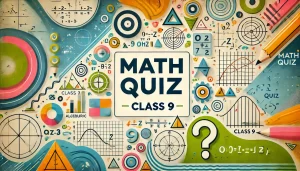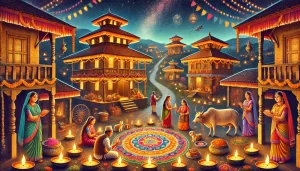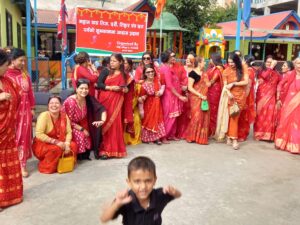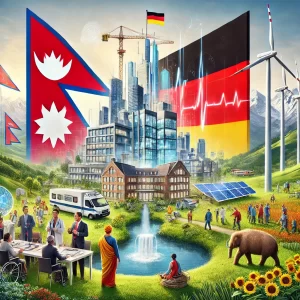Top 100 Questions and answer about Humanities
- What is the definition of humanities? Answer: Humanities refers to the academic disciplines that study human culture, including literature, history, philosophy, art, music, and language.
- Who is considered the father of modern philosophy? Answer: René Descartes.
- Which civilization built the Great Pyramids of Giza? Answer: Ancient Egyptians.
- Who painted the Mona Lisa? Answer: Leonardo da Vinci.
- Who wrote the novel “Pride and Prejudice”? Answer: Jane Austen.
- Which Greek philosopher was the tutor of Alexander the Great? Answer: Aristotle.
- Who wrote the play “Romeo and Juliet”? Answer: William Shakespeare.
- Which artist created the sculpture “David”? Answer: Michelangelo.
- Who composed the symphony “Ode to Joy”?
Answer: Ludwig van Beethoven. - What is the study of the origin and development of words called?
Answer: Etymology. - Who painted “The Starry Night”?
Answer: Vincent van Gogh. - Which civilization developed the concept of zero in mathematics?
Answer: Ancient Indians. - Who wrote the book “1984”?
Answer: George Orwell. - What is the study of human societies and their development called?
Answer: Sociology. - Who composed the opera “The Magic Flute”?
Answer: Wolfgang Amadeus Mozart. - Who is the author of “To Kill a Mockingbird”?
Answer: Harper Lee. - Which civilization developed the first system of writing known as cuneiform?
Answer: Sumerians. - Who painted “The Last Supper”?
Answer: Leonardo da Vinci. - Who wrote the poem “The Waste Land”?
Answer: T.S. Eliot. - What is the study of the Earth’s physical features, climate, and resources called?
Answer: Geography. - Who composed the ballet “Swan Lake”?
Answer: Pyotr Ilyich Tchaikovsky. - Who is the author of “The Catcher in the Rye”?
Answer: J.D. Salinger. - Which civilization built the Colosseum in Rome?
Answer: Ancient Romans. - Who painted “Guernica”?
Answer: Pablo Picasso. - Who wrote the play “Hamlet”?
Answer: William Shakespeare. - What is the study of moral principles and values called?
Answer: Ethics. - Who composed the symphony “Symphonie fantastique”?
Answer: Hector Berlioz. - Who is the author of “Moby-Dick”?
Answer: Herman Melville. - Which civilization developed the concept of democracy?
Answer: Ancient Greeks. - Who painted “The Sistine Chapel ceiling”?
Answer: Michelangelo. - Who wrote the novel “To the Lighthouse”?
Answer: Virginia Woolf. - What is the study of human behavior and mental processes called?
Answer: Psychology. - Who composed the opera “Carmen”?
Answer: Georges Bizet. - Who is the author of “The Great Gatsby”?
Answer: F. Scott Fitzgerald. - Which civilization built the Stonehenge?
Answer: Ancient Britons. - Who painted “The Persistence of Memory”?
Answer: Salvador Dalí. - Who wrote the play “Macbeth”?
Answer: William Shakespeare. - What is the study of human society, including its institutions, organizations, and patterns of relationships called?
Answer: Anthropology. - Who composed the symphony “Symphony No. 9”?
Answer: Ludwig van Beethoven. - Who is the author of “The Lord of the Rings”?
Answer: J.R.R. Tolkien. - Which civilization developed the concept of pi in mathematics?
Answer: Ancient Egyptians. - Who painted “The Birth of Venus”?
Answer: Sandro Botticelli. - Who wrote the novel “Jane Eyre”?
Answer: Charlotte Brontë. - What is the study of past events and their impact on society called?
Answer: History. - Who composed the ballet “The Nutcracker”?
Answer: Pyotr Ilyich Tchaikovsky. - Who is the author of “War and Peace”?
Answer: Leo Tolstoy. - Which civilization developed the first system of writing using hieroglyphics?
Answer: Ancient Egyptians. - Who painted “Girl with a Pearl Earring”?
Answer: Johannes Vermeer. - Who wrote the play “The Crucible”?
Answer: Arthur Miller. - What is the study of the principles of reasoning and correct inference called?
Answer: Logic. - Who composed the opera “La Traviata”?
Answer: Giuseppe Verdi. - Who is the author of “The Odyssey”?
Answer: Homer. - Which civilization built the Acropolis in Athens?
Answer: Ancient Greeks. - Who painted “The Night Watch”?
Answer: Rembrandt. - Who wrote the novel “One Hundred Years of Solitude”?
Answer: Gabriel García Márquez. - What is the study of the structure and rules of language called?
Answer: Linguistics. - Who composed the symphony “New World Symphony”?
Answer: Antonín Dvořák. - Who is the author of “The Canterbury Tales”?
Answer: Geoffrey Chaucer. - Which civilization developed the first known system of writing called hieroglyphics?
Answer: Ancient Egyptians. - Who painted “The Thinker”?
Answer: Auguste Rodin. - Who wrote the play “A Streetcar Named Desire”?
Answer: Tennessee Williams. - What is the study of the production, distribution, and consumption of goods and services called?
Answer: Economics. - Who composed the ballet “Giselle”?
Answer: Adolphe Adam. - Who is the author of “Don Quixote”?
Answer: Miguel de Cervantes. - Which civilization developed the concept of the wheel?
Answer: Sumerians. - Who painted “American Gothic”?
Answer: Grant Wood. - Who wrote the novel “The Grapes of Wrath”?
Answer: John Steinbeck. - What is the study of the physical universe and its properties called?
Answer: Physics. - Who composed the opera “The Marriage of Figaro”?
Answer: Wolfgang Amadeus Mozart. - Who is the author of “Crime and Punishment”?
Answer: Fyodor Dostoevsky. - Which civilization built the Angkor Wat temple complex?
Answer: Khmer Empire. - Who painted “The Creation of Adam”?
Answer: Michelangelo. - Who wrote the play “The Importance of Being Earnest”?
Answer: Oscar Wilde. - What is the study of human societies, cultures, and their development called?
Answer: Social sciences. - Who composed the symphony “Symphony No. 5”?
Answer: Ludwig van Beethoven. - Who is the author of “Brave New World”?
Answer: Aldous Huxley. - Which civilization developed the concept of the wheel in ancient Mesopotamia?
Answer: Sumerians. - Who painted “The Girl with the Pearl Earring”?
Answer: Johannes Vermeer. - Who wrote the novel “Frankenstein”?
Answer: Mary Shelley. - What is the study of the interpretation and analysis of written texts called?
Answer: Literary criticism. - Who composed the opera “The Barber of Seville”?
Answer: Gioachino Rossini. - Who is the author of “The Iliad”?
Answer: Homer. - Which civilization built the Parthenon in Athens?
Answer: Ancient Greeks. - Who painted “The Creation of Venus”?
Answer: Sandro Botticelli. - Who wrote the play “Death of a Salesman”?
Answer: Arthur Miller. - What is the study of human culture and society called?
Answer: Cultural anthropology. - Who composed the ballet “Sleeping Beauty”?
Answer: Pyotr Ilyich Tchaikovsky. - Who is the author of “The Divine Comedy”?
Answer: Dante Alighieri. - Which civilization developed the concept of zero in mathematics in ancient India?
Answer: Ancient Indians. - Who painted “The Persistence of Memory”?
Answer: Salvador Dalí. - Who wrote the novel “The Great Gatsby”?
Answer: F. Scott Fitzgerald. - What is the study of the Earth’s physical features, climate, and resources called?
Answer: Geography. - Who composed the symphony “Symphony No. 9”?
Answer: Ludwig van Beethoven. - Who is the author of “The Lord of the Rings”?
Answer: J.R.R. Tolkien. - Which civilization developed the concept of pi in mathematics in ancient Egypt?
Answer: Ancient Egyptians. - Who painted “The Birth of Venus”?
Answer: Sandro Botticelli. - Who wrote the novel “Jane Eyre”?
Answer: Charlotte Brontë. - What is the study of past events and their impact on society called?
Answer: History. - Who composed the ballet “The Nutcracker”?
Answer: Pyotr Ilyich Tchaikovsky. - Who is the author of “War and Peace”?
Answer: Leo Tolstoy.





